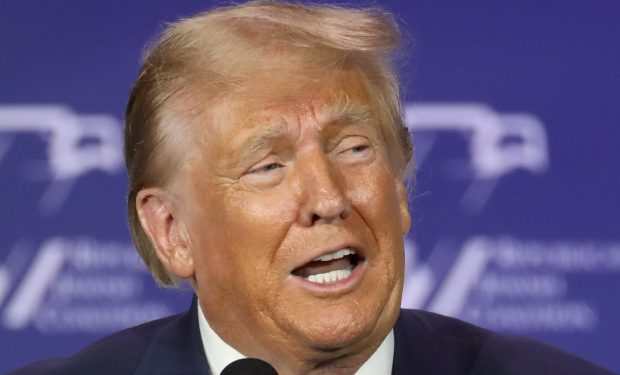Former President Donald Trump, the presumptive GOP presidential nominee, claimed on social media that if he’s re-elected, Russian President Vladimir Putin will release American Wall Street Journal reporter Evan Gershkovitz, who was charged with espionage and has been held in a Russian prison for over a year awaiting trial. Trump wrote that Putin “will do that for me, but not for anyone else.”
I guess, in the new GOP, "the dictators in the Kremlin love me" is a selling point pic.twitter.com/9O59h4Lt2U
— Tom Nichols (@RadioFreeTom) May 23, 2024
Trump’s claim suggests that he is in contact with Russian authorities about Gershkovich, which some legal analysts say suggests that the Russians are keeping hold of the WSJ reporter to benefit Trump politically.
When former U.S. Ambassador to Poland Daniel Fried questioned Trump’s contact with Russian authorities, former FBI Special Agent-turned-Yale Law grad Asha Rangappa suggested that Trump “read up on the Logan Act again.”
Time to read up on the Logan Act again https://t.co/zIZj9iNidU
— Asha Rangappa (@AshaRangappa_) May 23, 2024
The Logan Act is a federal law “that criminalizes negotiation by unauthorized American citizens with foreign governments having a dispute with the United States. The intent behind the Act is to prevent unauthorized negotiations from undermining the government’s position.”
Note: The Department of Justice suspected that Trump’s former National Security Adviser, retired Army General Mike Flynn, violated the Logan Act when he had conversations with Russia’s then-ambassador Sergey Kislyak in 2016. (Flynn later pleaded guilty for lying to the FBI about those conversations.)
In the wake of Special Counsel Robert Mueller’s investigation into Russian election interference, Republican Rep. Guy Reschenthaler (PA) introduced a bill to repeal the Logan Act. The bill, which was not brought to the floor for a vote, was co-sponsored by House Republicans Devin Nunes (CA), Jim Jordan (OH), Greg Steube (FL), Scott Perry (PA), and Kelly Armstrong (ND).
Only two people have ever been indicted on charges of violating the Act, one in 1802 and the other in 1852. Neither were convicted.
